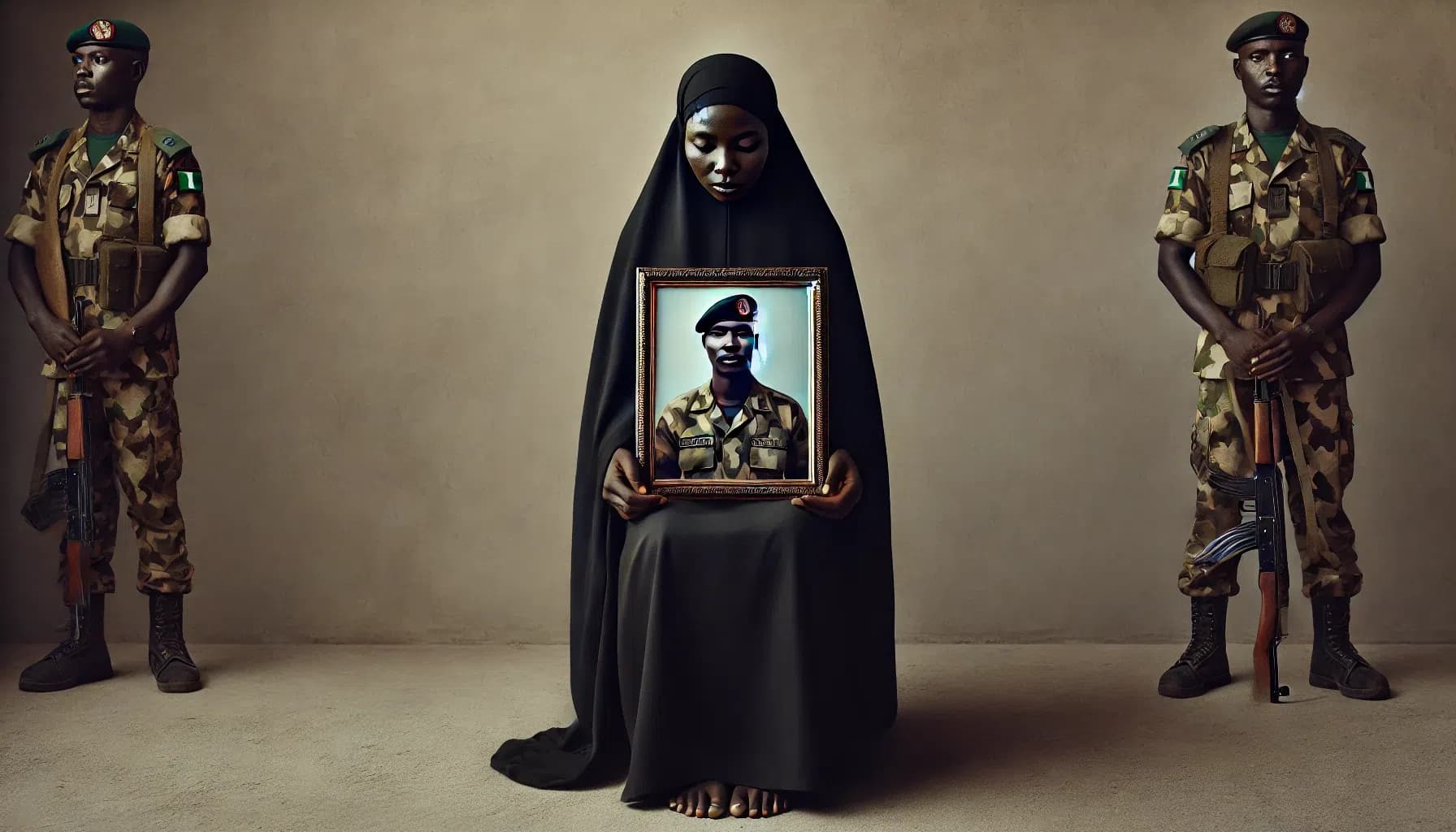When a Nigerian soldier dies in war, the country mourns. However, beyond the headlines, the news and military ceremonials, there’s something else that many people don’t see. That is, what happens to the families left behind?
These are the wives, children, parents and siblings who must face life without their loved one. Nigeria has fought several brutal wars over the years. From the fight against Boko Haram in the North-East, to Niger Delta missions, and more recently, peacekeeping missions abroad. These conflicts have cost thousands of military lives.
But, while we commend our fallen heroes for their sacrifice, do we really care for the people they leave behind? Do their families receive the support they deserve? Or are they abandoned once the cameras stop rolling? What happens when the shooting stops?
The weight of sacrifice
In Nigeria, joining the military is seen as a noble act. Soldiers are respected and honoured for their bravery.
But for the families of those who die in battle, that honour can come with heavy consequences.
Many widows have been left to raise their children on their own. No support from the army, no stable income and no clear information on how to access any benefits her husband may have earned.
One of the clearest examples of this neglect is the story of Bolajoko, a widow featured in a 2021 Premium Times investigation. Her husband died in active service. After his death, Bolajoko was left to fend for their children alone.
She told reporters that despite her repeated efforts to claim her late husband’s benefits, the process was long, confusing, and ultimately fruitless. “It’s been nine years since my husband died,” she said, “and I still haven’t received the gratuity we were promised.”
Her story is just one of many that prove Nigeria’s system for supporting military widows is deeply broken.
What support is promised?
According to the Nigerian Armed Forces policy, the families of deceased soldiers are entitled to:
Death gratuity (a lump-sum payment)
Pension benefits
Educational scholarships for children (under the Nigerian Army Welfare Scheme)
Housing support in some cases
However, many widows say these promises rarely translate into reality.
Bureaucracy and silence
For most families, navigating the military system is like running a marathon blindfolded. The process is slow, confusing, and cold.
A retired soldier, who asked to remain anonymous, explained:
“Once a soldier dies, the unit moves on. Unless the family pushes hard, they might never get anything. And even when they push, they hit brick walls.”
He added that in some cases, funds meant for families are delayed or mismanaged.
The Boko Haram years: A flood of widows and orphans
From 2009 to date, Boko Haram’s war on Nigeria has claimed over 350,000 lives, according to the United Nations Development Programme. Among the dead are thousands of soldiers.
In 2018, the Nigerian Army set up the Fallen Heroes Support Fund to help widows and orphans. But critics say the support is inconsistent.
During the burial of 23 soldiers in Maiduguri in 2020, the then-Chief of Army Staff promised to “take care of the families.” But many of those families later told journalists they received little to no help beyond the funeral.
The lack of financial support when a loved one dies in service of their country is one issue. The emotional trauma of losing said loved one in battle is another. But perhaps most painful is the lack of closure. In some cases, the bodies are never recovered. Families are left in limbo.
The Nigerian Military needs to do better
It’s clear that the Nigerian government and military need to overhaul how they treat the families of fallen soldiers. These men and women died protecting Nigeria. The least the country can do is ensure their families are not left behind.
There must be:
A central database of fallen soldiers and their families
Direct financial transfers to widows and orphans
Legal assistance to help families access benefits
Mental health support for grieving relatives
As Nigerians, we must ask ourselves: do we truly honour our heroes if their families are allowed to suffer in silence? Honouring the dead must include caring for the living they left behind.
“A country that cannot protect the memory of its heroes is not worthy of their sacrifice.”
Until Nigeria fixes this broken system, many will keep dying for a nation that forgets them too quickly.…CONTINUE READING>>

